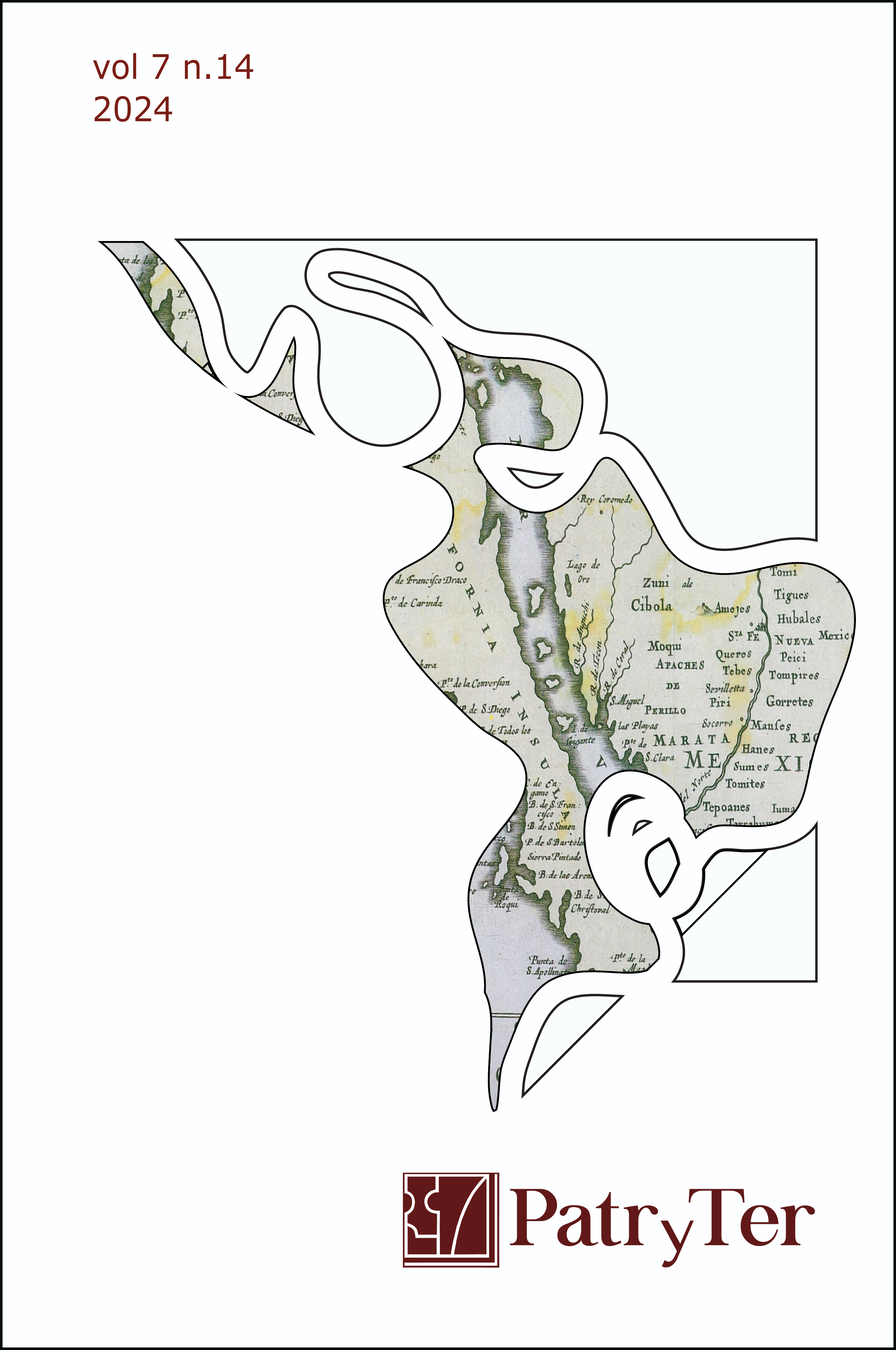Cities of clobal patrimonialization”: debate on urbanization, territory, and the commodification of culture (review))
DOI:
https://doi.org/10.26512/patryter.v7i14.54183Keywords:
City. patrimonialization. heritage policies. urban planning.Abstract
The historical movement encompasses the city in constant transformation, full of experiences and meanings, in addition to being a place of material accumulation. This perspective allows a critical analysis of the management of new socio-territorial configurations resulting from the commercial and tourist valorization in the central areas of cities. Such analysis clarifies crucial questions about the type of historic city being shaped and the preservation model consolidated in Brazil and even in Latin America. The work "Cities of global patrimonialization: simultaneity of urban totality - totality-world," published in 2015 by Humanitas and financed by FAPESP, offers an in-depth investigation into what is conceptualized as “global patrimonialization” and its effects on historic Brazilian cities, which is replicated in other Latin American studies.
Downloads
References
Costa, E. (2015). Cidades da patrimonialização global: Simultaneidade totalidade urbana - totalidade-mundo. São Paulo: Humanitas/FAPESP
Costa, E. (2014). Fundamentos de uma emergente patrimonialização global. Geografia, 2(39), 241-256. https://www.periodicos.rc.biblioteca.unesp.br/index.php/ageteo/article/view/9318.
Kosik, K. (1976). Dialética do Concreto. Rio de Janeiro: Ed. Paz e Terra.
Lukács, G. (1965). Prolegomenos a una estetica marxista. Cidade do México: Editorial Grijalbo.
Lukács, G. (1967). Estética: la peculiaridad de lo estetico. Barcelona, México, D.F., Ediciones Grijalbo.
Downloads
Published
How to Cite
Issue
Section
License
Copyright (c) 2024 PatryTer

This work is licensed under a Creative Commons Attribution-NonCommercial-NoDerivatives 4.0 International License.
Please be advised that Revista Patryter is licensed under a Creative Commons Attribution-NonCommercial-NoDerivatives 4.0 International License (CC BY 4.0) https://creativecommons.org/licenses/by/4.0/
Authors who publish in the PatryTer Magazine agree to the following terms:
- Authors retain the copyright and grant the journal the right of first publication, the work being simultaneously licensed under the Creative Commons Attribution License (CC BY) which allows the sharing of the work with recognition of the authorship of the work and initial publication in this journal.
- The contribution is original and unpublished and is not being evaluated for publication by another journal. When submitting the article, authors should attach as a supplementary document a Letter addressed to the PatryTer's Editor, indicating the academic merits of the submitted work (relevance, originality and origin of the article, that is, from what type of research]. This letter must be signed by all authors.
- Authors assign the copyright of the work that they present to the Editorial Board of PatryTer Magazine, which may serve the article in the PatryTer Magazine and in public and private databases in Brazil and abroad.
- Authors declare that they are fully responsible for the entire contents of the contribution that they submit to the Editorial Board of PatryTer Magazine.
- Authors declare that there is no conflict of interest that could interfere in the impartiality of the scientific papers submitted to the PatryTer Magazine Editorial Board.
- Authors are authorized to take additional contracts separately, for non-exclusive distribution of the version of the work published in this journal (eg publish in institutional repository or as a book chapter), with acknowledgment of authorship and initial publication in this journal.
Authors are allowed and encouraged to publish and distribute their work online (eg in institutional repositories or on their personal page) at any point before or during the editorial process, as this can generate productive changes as well as increase the impact and the citation of the published work (See The Effect of Free Access).




